WELLS — A line of seaweed in the sand was drawn Saturday at Moody Beach.
On one side of the line were “private beach” signs in front of expensive homes that border Moody Beach.
On the other side of the seaweed line were beachgoers, crammed on the public side.
“This is the border,” summer visitor Paul Roy said. Sitting near him was Susan Roy, who said an adjacent homeowner places the seaweed border there every day.
A 1989 Maine Supreme Judicial Court ruling affirmed that beach homeowners in the area own the stretch from their homes to the water, not allowing public access.
“I don’t think it’s right,” Paul Roy said. “I think the court got it wrong. All of the beaches should be for everybody.”
On Saturday, about 100 members of two groups, Our Maine Beaches and Free Moody Beach, participated in a rally that called attention to the longtime dispute over public use of Moody Beach. The groups who want to see public access to the beach are supporting a court challenge to overturn the 34-year-old ruling.
Group members say the issue is not limited to Moody Beach, and that there’s a growing trend in Maine of coastal land being shut off to the public.
At Popham Beach in Phippsburg, two families who have had beachfront properties for decades are feuding over a sandy footpath. One claims ownership; the other says the stretch has been a common area for generations. The parties are looking for a remedy through the courts.
In another recent case, Maine’s high court affirmed that the town of Kennebunkport, not 23 private landowners, can lay claim to a 2-mile stretch of waterfront at Goose Rocks Beach.
The protesters on Saturday marched from the Ogunquit town line, where the beach is public, through Moody Beach to Moody Point, an area lined with homes where the public is not allowed, except for three narrow rights of way.
Debra Tambeau of Massachusetts, who marched for public access, said she’s been coming to the beach every summer since 1962, when her family started building homes in Wells.
“I grew up on this beach,” she said. “These were the best years of my life. Now I bring my kids and grandkids. It’s sad that this should come down to this.”
What happened at Moody Beach could happen to other coastal land, said Tambeau, who would like to see the 1989 law undone. “Where do you go anymore that’s free? … It shouldn’t be that way. No one owns the beach.”
She’d be happy with a compromise, perhaps letting the homeowners keep the area 50 yards from their home private, but not all the way to the water.
Benjamin Ford is an attorney at Archipelago Law in Portland who represents plaintiffs demanding public beach access. At the protest, Ford explained that Maine’s high court ruled in 1989 that because of a colonial ordinance written in the 1640s, private individuals own the beach all the way to the low-tide line. “Therefore Moody Beach and 3,000 miles of the Maine coastline could be owned all the way to the low-tide line,” he said.
That means those who own Maine coastal property “could kick people off” beaches, Ford said. When the 1989 ruling came out, it wasn’t considered a big deal, he said. But as values of coastal property surged, and as more out-of-staters bought coastal land, it became a bigger problem.
“It’s happening in other places,” Ford said. “It’s not just a day on the beach.” He gave an example of seaweed harvesters losing coastal access, which is hurting their livelihoods. “Clammers who have the right to dig clams on mudflats are being harassed by landowners who don’t understand these people make their livelihoods on the shorelands.”
In May, Archipelago Law filed a motion asking the court to decide the challenge without a trial, Ford said.
As protesters made their way down the beach Saturday, they chanted, “The sand is yours, the sand is mine” and “Rocks, ocean, sand and sun, Moody Beach for everyone!”
Mark Boudreau, who owns a home at Moody Point, said he can see the beach from where he lives but is not supposed to use it. As new beach homeowners moved in and built more expensive homes, they became more aggressive about keeping people off their property, he said.
David Giarusso, a Moody Beach homeowner, said he bought his beach home in 2013, tore it down and built his “forever home” in 2018.
“We do own the land all the way to the water,” he said, adding that Moody Beach is private. “It is what it is. People can dispute that.”
Some of his neighbors do chase people off their property, Giarusso said, but he has better things to do than police the beach. It would be awful, he said, to come downstairs, lie on his beach chair and fight with people.
If the court eventually changes the rules, “I would like to see a reduction in my taxes,” Giarusso said. He said his property taxes are about $27,000 a year.
Giarusso said he allows people to use the beach in front of his home as long as they’re respectful.
“I have three simple rules: No smoking, pick up your trash and don’t erect a huge tent in front of where I’m sitting. Other than that, you can use my beach in front of my house.”
Copy the Story LinkSend questions/comments to the editors.


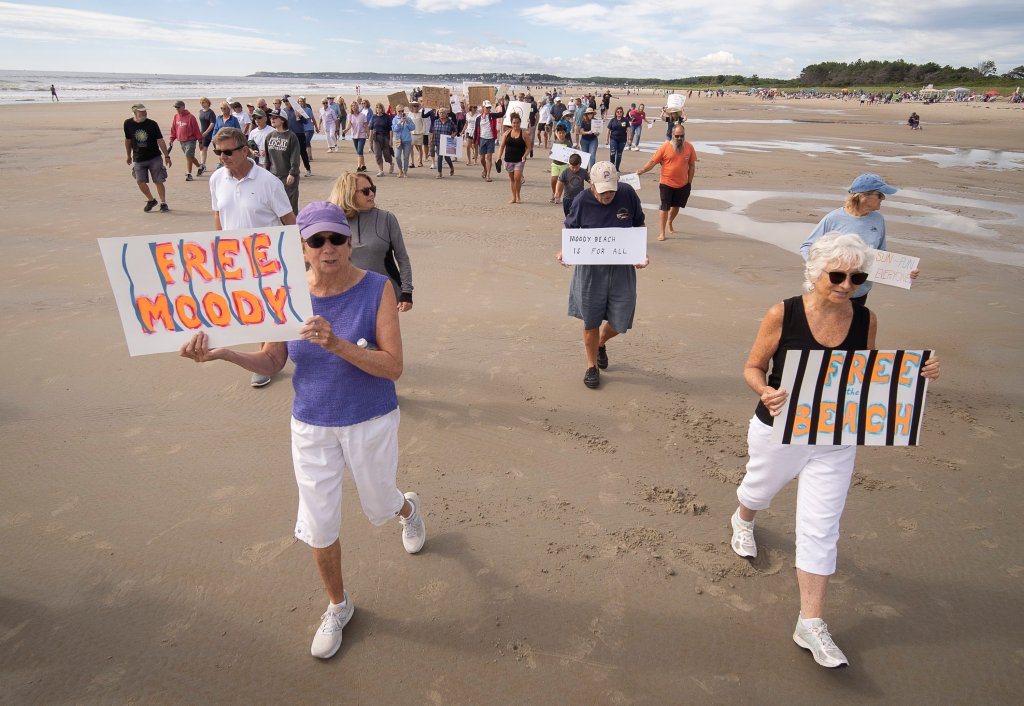
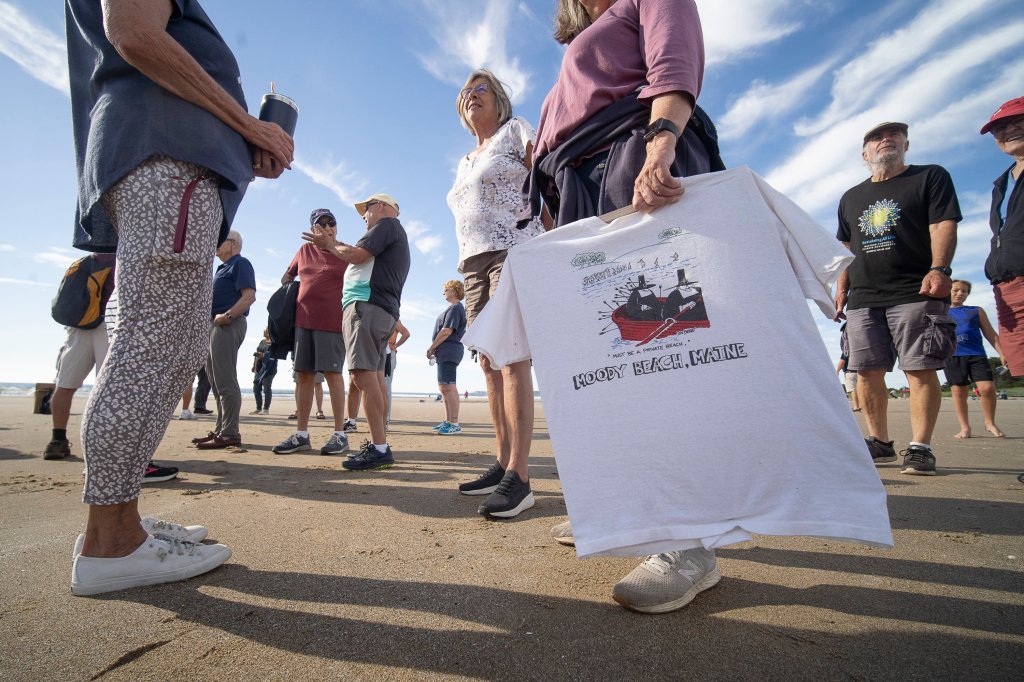
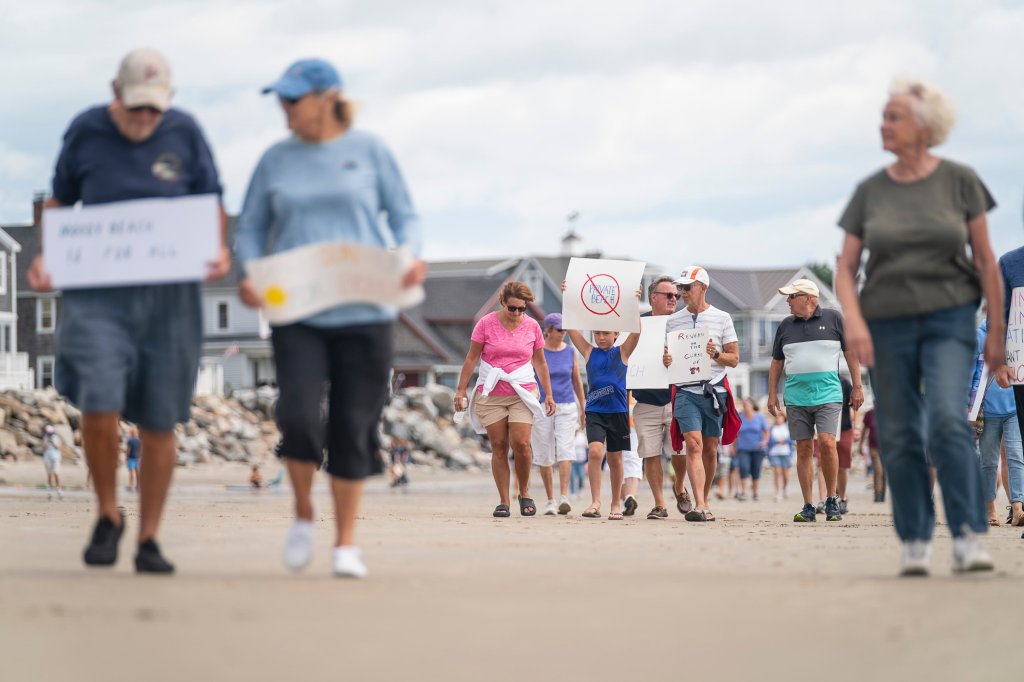
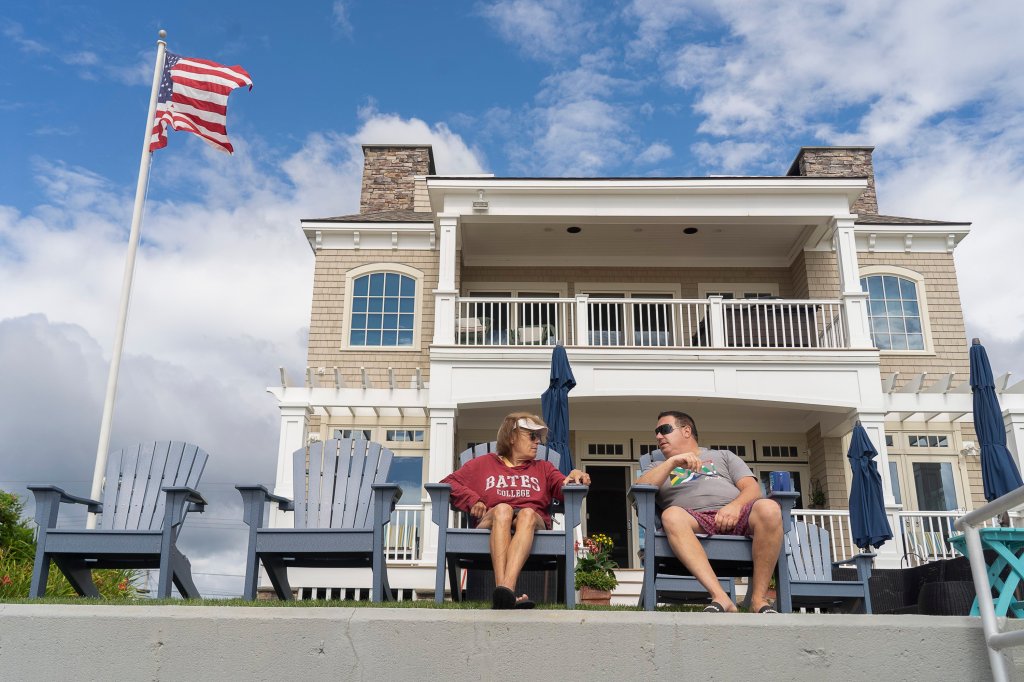
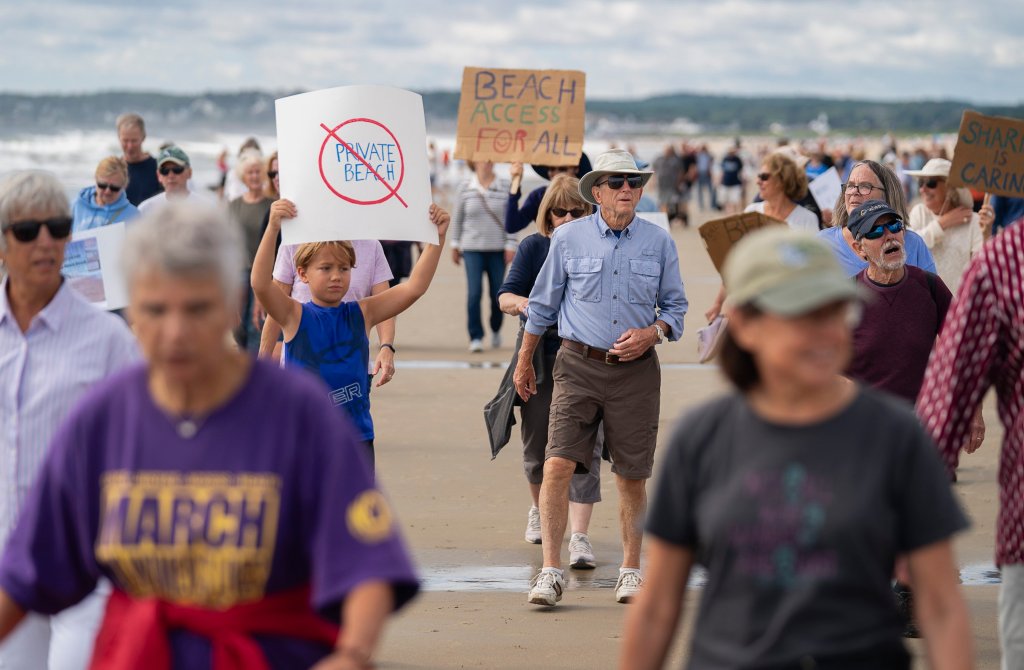
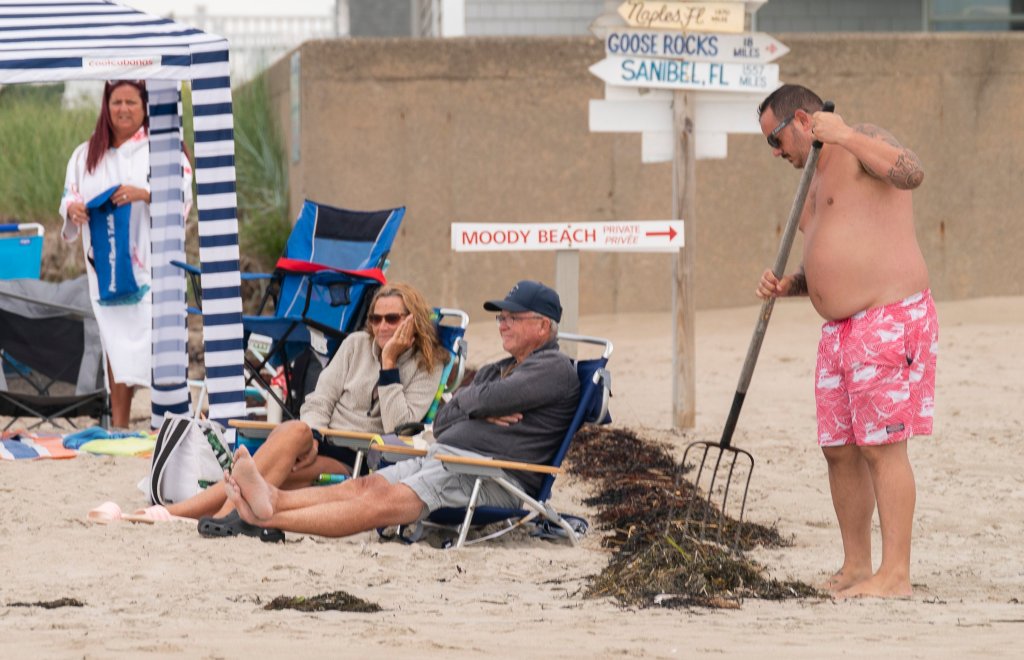
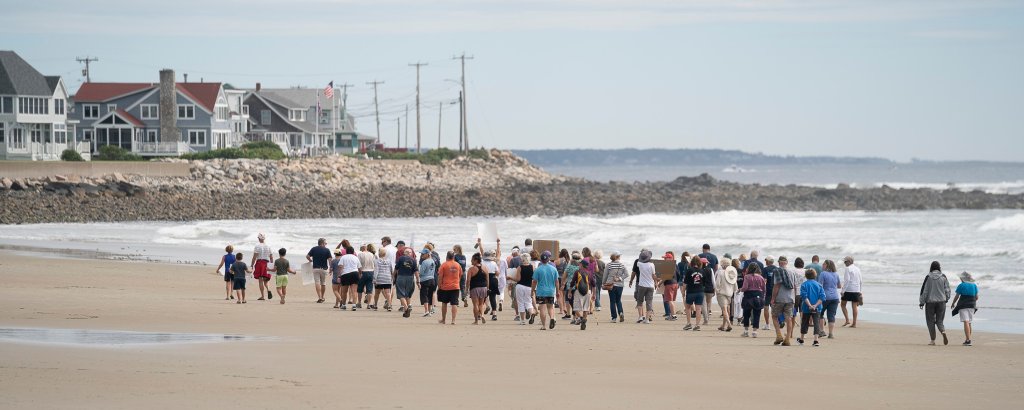
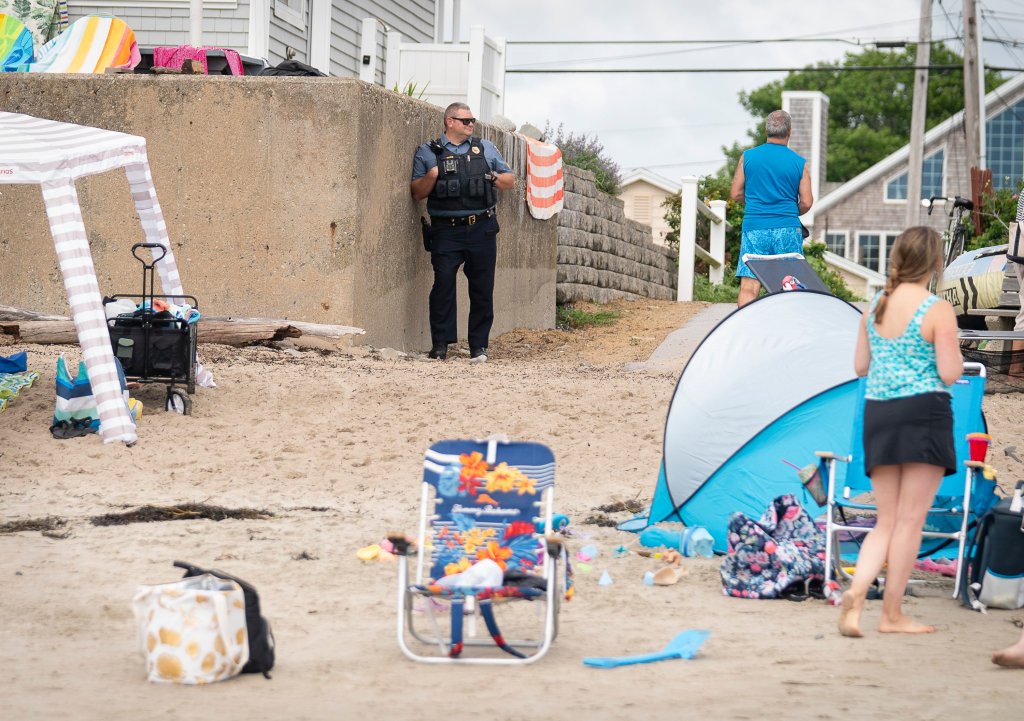

Success. Please wait for the page to reload. If the page does not reload within 5 seconds, please refresh the page.
Enter your email and password to access comments.
Hi, to comment on stories you must . This profile is in addition to your subscription and website login.
Already have a commenting profile? .
Invalid username/password.
Please check your email to confirm and complete your registration.
Only subscribers are eligible to post comments. Please subscribe or login first for digital access. Here’s why.
Use the form below to reset your password. When you've submitted your account email, we will send an email with a reset code.